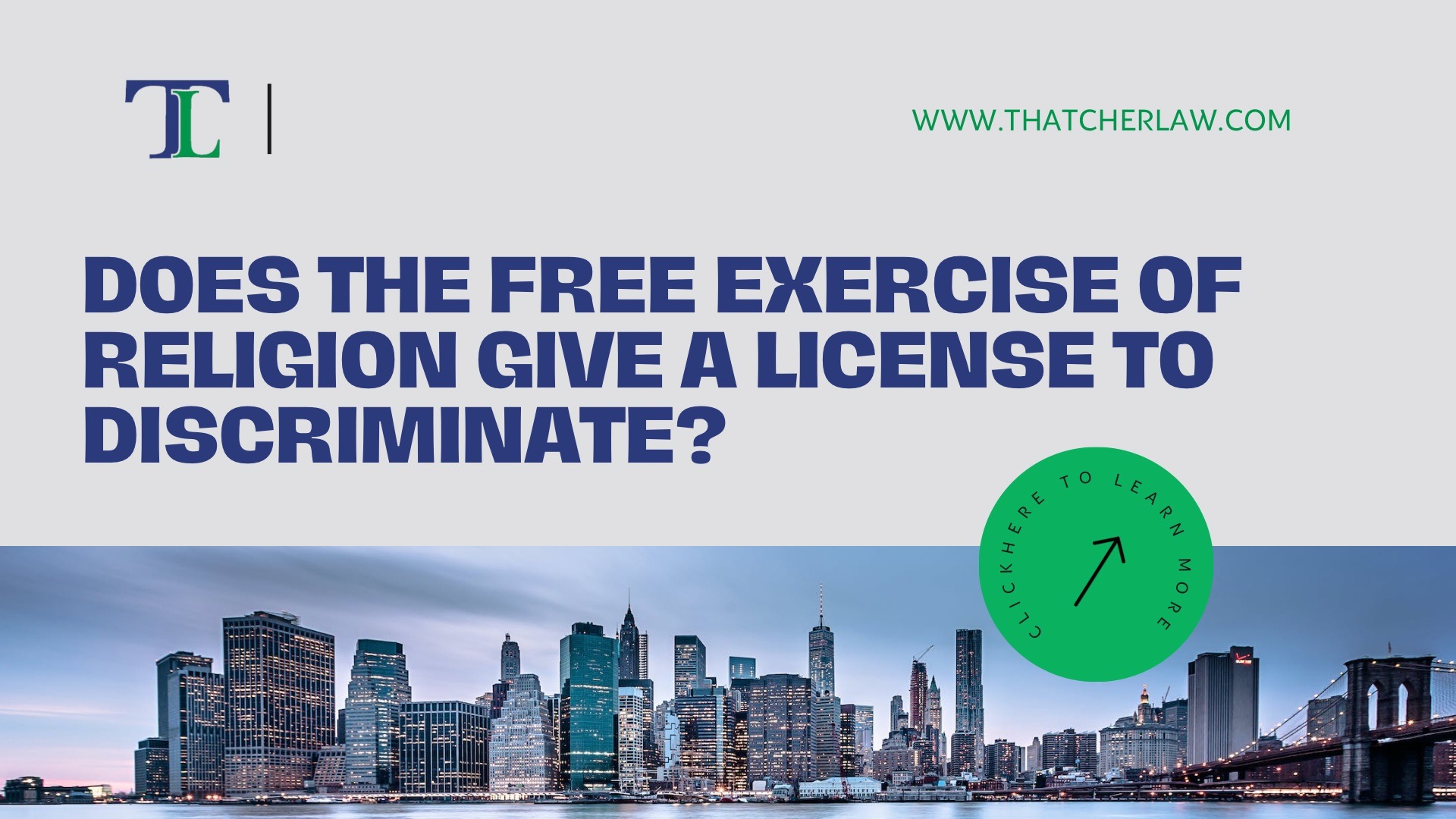A current case before the U.S. Supreme Court, 303 Creative v. Elenis, could have far-reaching consequences for anti-discrimination laws affecting businesses that serve the public.
This case arose in Colorado, a state with anti-discrimination laws that prohibit businesses from denying services to potential customers because of their membership in a protected class including racial groups, religious affiliations, age, disability status, and more. The Colorado Anti-Discrimination Act (CADA) applies only to businesses that choose to serve the public and requires that they not discriminate in doing so. 303 Creative, a website design company, says it has a First Amendment right not to comply with the law because its service is “expressive,” “artistic,” and “customized,” and that it cannot be compelled to provide such services to a wedding to which it is ideologically opposed.
Colorado’s anti-discrimination laws cover a wide range of statuses including membership in the LGBTQ+ community. In 303 Creative v. Elenis, a website designer who planned to expand her business to include wedding announcement websites wanted to advertise on her website that she was unwilling to provide services to same-sex couples, but would refer them elsewhere. She learned that such a notice would violate Colorado laws which prevent public businesses from discriminating against gay people, as well as to make statements to that effect. Before she implemented her plan to advertise her unwillingness to provide services to same-sex couples, she sued Colorado. Like the baker in Masterpiece Cakeshop v. Colorado Civil Rights Commission the website designer/ business owner claims to have firm religious objections to same-sex marriage and believes that producing wedding websites for same-sex couples would violate her First Amendment right to free exercise of religion. In Masterpiece, the Supreme Court ruled for the baker on narrow procedural grounds, finding that the Colorado Civil Rights Commission was unfairly hostile to the baker’s religious beliefs when they conducted an investigation into his refusal to provide services to gay couples. The District Court ruled against the website designer who, at the time of the ruling had not been investigated by Colorado, and there was no evidence that she had engaged in discrimination. The Tenth Circuit Court of Appeals upheld the decision, and the website designer appealed to the Supreme Court. The Supreme Court has limited the case to the question of whether Colorado’s law violates the Free Speech Clause of the First Amendment. Unlike the Masterpiece Court (5-4 majority conservative justices), this Court (6-3 majority) is seen as more favourable to broad religious rights.
The state of Colorado and supporters of these anti-discrimination laws argue that if a religious exception is made, these laws may cease to operate altogether. Commercial businesses could easily claim the exemption in an effort to refuse service to people of any other race, religion or creed.
Traditionally, laws like Colorado’s have affirmed that public businesses must be open to all consumers even in cases of strong religious objections. Will the Supreme Court continue this tradition, or will it recognize a new right to refuse service to members of the public based on the religious beliefs of the business?
The majority seems to have sympathy for the graphic designer
According to the Associated Press and SCOTUSblog, the majority of the court seemed sympathetic to the business owner in this case. Meanwhile, the three liberal justices appeared to be concerned about the case’s possible effect on anti-discrimination laws.
Justice Sonia Sotomayor, for example, pointed out that a ruling for the graphic designer would be the first time the court ruled that a “commercial business open to the public, serving the public, that it could refuse to serve a customer based on race, sex, religion or sexual orientation.”
Justices Samuel Alito and Brett Kavanaugh, on the other hand, seemed more sympathetic. Alito recognized that there are “honorable people who object to same-sex marriage” whose free speech and religious rights need to be protected.
Will the court limit its decision as it did five years ago?
In 2017, in Masterpiece Cakeshop v. Colorado Civil Rights Commission, the Supreme Court ruled that Colorado’s anti-discrimination laws did not apply to a Christian baker who refused to bake a cake for a same-sex union; however, it made its ruling fairly limited. The ruling specifically applied to Masterpiece Cakeshop and no other business entity.
Will the high court issue another limited decision in 303 Creative v. Elenis? This decision has the potential to substantially impact the operation of anti-discrimination laws nationwide.
A ruling is not expected until June 2023.
If you have questions about public accommodation discrimination or how to comply with your state’s anti-discrimination laws, contact Thatcher Zavaro & Mani at 301-850-1246. www.ThatcherLaw.com. Follow us on:

